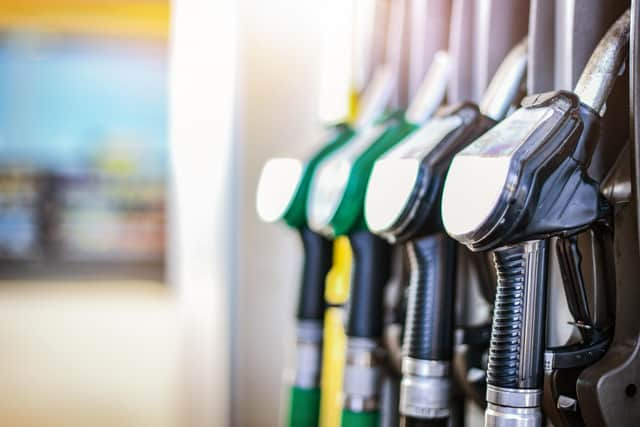Cost of living crisis: Average Mansfield driver ‘could spend over £250 more’ on annual petrol costs
and live on Freeview channel 276
The AA said soaring prices, which have topped more than £2 per litre at some forecourts, have seen some motorists swap their fuel-powered cars for electric alternatives, while others on lower incomes have had to sell their cars entirely.
On average, the cost of a litre of petrol in Mansfield stood at £1.80 over the four days to June 14, according to figures from petrolprices.com – up 40 per cent from £1.28 over a week in early June last year.
Advertisement
Hide AdAdvertisement
Hide AdIt was £1.83 in Ashfield, up 42 per cent from £1.29 12 months ago.


Department for Transport figures show the average annual mileage of a car driver in the East Midlands was 4,107 miles in 2018-19, the latest figures before the coronavirus pandemic.
At current prices in Mansfield, a driver travelling this distance would spend an average of £933 on filling up a petrol car over the year, or £948 in Ashfield, up from £665 and £668 respectively, based on prices in June 2021.
Diesel drivers in Mansfield doing the same mileage would see their costs rise by 39 per cent, from £588 to £815. In Ashfield, it is up 36 per cent, from £608 to £825.
Advertisement
Hide AdAdvertisement
Hide AdJack Cousens, AA head of roads policy, said: “Those drivers hit hardest by record petrol and diesel are in low-income households, young drivers trying to make a start in life and rural residents forced to drive much higher mileages than most.”
The RAC Foundation said people on lower incomes are hit hardest by price rises at the pumps as they are unable to switch to electric vehicles and often rely on their cars to get to work with no alternative.
The Treasury said it has protected the 8m most vulnerable households with £1,200 of direct payments this year.
A spokesman said: “Through our £37 billion support package, we are also saving the typical employee more than £330 a year through a tax cut in July, allowing people on Universal Credit to keep £1,000 more of what they earn and cutting fuel duty by 5p, saving a typical family £100.”
